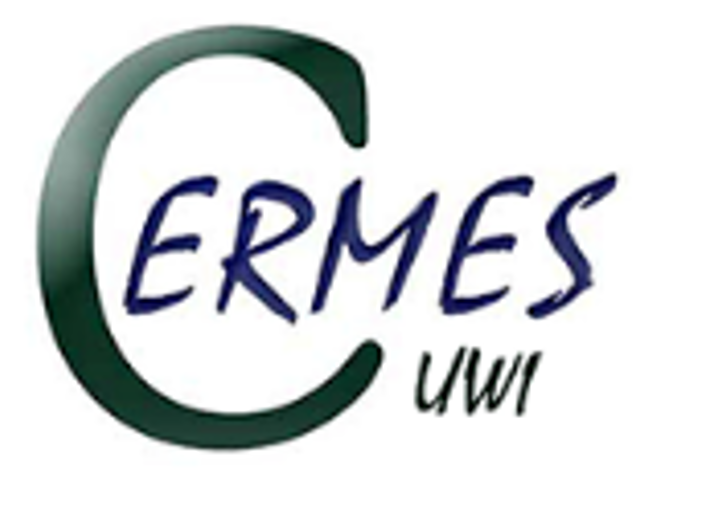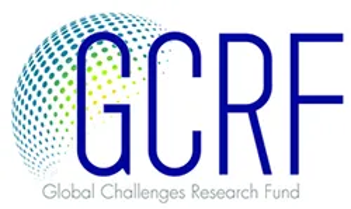Team
SARTRAC brings together knowledge and expertise from different disciplines and partners from sargassum affected countries. The team comprises four universities: University of Southampton, University of Ghana, University of the West Indies, and University of York.

Management

Professor Emma Tompkins
University of Southampton
Project Lead/Project Management Board
Professor of Geography, Environment and Development
Emma Tompkins is a Professor of Geography, Environment and Development, within the School of Geography and Environmental Sciences at the University of Southampton. She has over 30 years' work experience on environmental decision making at multiple scales, and 17 years' research on human behavioural and institutional adaptation to the impacts of weather hazards, climate variability and change.
She has experience of working in partnership with large consortia and has published on a range of topics including: integrated coastal zone management, UK flood risk management, tropical agricultural adaptation to floods; individual behaviours and environmental risk; climate resilience in hazard prone areas; and adaptation to environmental change in small islands.
She has been working on sargassum issues in the tropical Atlantic since 2018. Emma is the Principal Investigator of the SARTRAC project which aims to investigate opportunities for transformational adaptation from the massive sargassum seaweed landings that have occurred since 2011.
Her role in SARTRAC is to lead the consortium, and to embed and develop, core themes of equitable resilience, and transformational adaptation.

Professor Kwasi Appeaning Addo
University of Ghana
Director for the Institute for Environment and Sanitation Studies
Director for the Institute for Environment and Sanitation Studies
Professor Kwasi Appeaning Addo is the Director for the Institute for Environment and Sanitation Studies in the University of Ghana; Co-Pi for the deltas, vulnerability and climate change; migration and adaptation (DECCMA project (2014 - 2018); Co-Pi for the integrated and sustainable port development in Ghana within an African context project (2016 - 2020); Co-Pi for the beach dynamics through video monitoring to improve coastal management strategies in West Africa (BEACHMON) project (2017 - 2020); Co-Pi for the empowering women and transforming gender relations in the Volta delta, Ghana project (2019 - 2020), PI for the urbanizing deltas for the world: design for inclusive and adaptive delta management (DIADeM) project (2019 - 2020), WP lead for the coastal community resilience to climate and diarrhea (C2R-CD) project (2020 -2025).

Dr Janice Cumberbatch
University of the West Indies
Co-lead WP4
Dr. Cumberbatch has over 30 years professional experience in participatory research, environmental management, social impact assessment, social planning, heritage tourism management, meeting facilitation and training.
She has also published several articles in the areas of environmental management, climate change, tourism, social planning and sustainable development.

Dr Thierry Tonon
University of York
Co-leader of the WP3 "Transformation"; Member of the Project Management Board
Lecturer in Algal Biology at the University of York
Thierry Tonon is a Lecturer in Algal Biology at the University of York. He has ample experience studying various aspects of bacterial and algal physiology and molecular biology, with a focus on primary metabolism.
His current research is centred on characterizing metabolic pathways and enzymes important for algal metabolism and for biogeochemical cycles. This relied on approaches including genome sequencing, transciptome and metabolite profiling, and heterologous expression of proteins for biochemical characterization.
He is also working on developing biotechnological applications of algae, and valorisation of seaweed biomass, notably in the context of biorefinery.

Dr Ava Maxam
University of the West Indies, Mona Geoinformatics Institute
Project Management Board Co-Lead
Deputy Director
Dr Ava Maxam is a member of the Project Management Board who will be providing expertise in Zoology and GIS for the SARTRAC project. She completed her PhD studies in Oceanography at the University of the West Indies, where she also obtained a Bachelor's degree (Hons) in Zoology and Botany.
She is currently Deputy Director of MGI, where she manages the Natural Hazards & Environment Division, the Human & Social Division, and the Software Development Division. As lecturer at the University of the West Indies, she delivers Geographic Information Systems (GIS) courses to graduates, undergraduates and professionals.
Dr Maxam's range of professional experience has spanned from coastal processes modelling and spatial analysis, to developing spatial solutions for clients across private and government sectors. She has led consultancies in GIS application, coastal hydrodynamic modelling, as well as oceanographic, environmental, ecological and bio-physical assessments.
Members

Damoi Escoffery
University of the West Indies, Mona Geoinformatics Institute
GIS Officer
Damoi Escoffery is a recent graduate of the University of the West Indies (BSc Geography and minor in Computer Science). Her past work experience obtained at the National Works Agency and Urban Development Corporation enabled her to develop both static and dynamic maps, as well as aid in the development of a GIS web application.
On this project, she will be responsible for contributing GIS efforts to assist in project completion.

Dr Carla Botelho Machado
University of York
Technician
Dr Machado is involved in the research at the University of York, which is focused on analysing Sargassum feedstock consistency (WP3).
They will provide an in-depth characterisation of the biochemical composition of Sargassum biomass and assess changes related to the seasonality and storage. These results will pave the way for subsequent applications of this seaweed feedstock.

Catrina Hinds
UWI Centre for Resource Management and Environmental Studies (CERMES)
Project Co-ordinator/Researcher
Catrina Hinds is a Project Coordinator at CERMES. Her main areas of interest include disaster risk reduction, climate change adaptation and sustainable tourism. Catrina provides research and project management support under the SARTRAC project.

Professor Hazel A. Oxenford
UWI Centre for Resource Management and Environmental Studies (CERMES)
Professor of Marine Ecology and Fisheries
Professor Hazel Oxenford has over 30 years of experience in applied marine biology and marine management with a focus on Caribbean coral reefs, pelagic fisheries and marine resource management in a changing world. She is based in Barbados at the UWI Centre for Resource Management and Environmental Studies (CERMES) and has wide-experience in teaching, consulting and supervision of postgraduate students.
Most recently she has been deeply involved in understanding and communicating the new origins and impacts of sargassum, and developing best practice guidelines for coping and adapting to this new phenomenon. She has served on numerous national and international Technical Advisory Committees and Working Groups, and has been widely recognized for her academic work and public service. She has published over 70 peer-reviewed papers, co-authored several books and book chapters, and more than 150 technical reports across a number of disciplines.
Together with other Caribbean-based team members, Professor Oxenford will serve a primary role in navigating the project through ongoing sargassum research initiatives in the region to ensure maximum impact, and will provide technical advice in aspects of monitoring, management and communicating forecasts of sargassum influxes.

Professor Jack Corbett
University of Southampton
Professor of Politics
Professor Corbett's research primarily focuses on democratic governance in small states. He is the author of four books, two edited books and more than 60 articles and book chapters. He is co-editor of the Topics in the Contemporary Book Series with University of Hawaii Press and Routledge Studies in Anti-Politics and Democratic Crisis.
In addition to the ESRC, his work has been funded by the British Academy, Developmental Leadership Program, Australian Research Council, and the Australia and New Zealand School of Government.

Professor Jadu Dash
University of Southampton
Professor of Geography, Environment and Development
Co-I, WP2 lead
Jadu Dash is a Professor in Remote sensing in the School of Geography and Environmental Science at the University of Southampton, UK. He has a strong international reputation in mapping, monitoring and understanding ecosystem processes using Earth observation data.
He works closely with the European Space Agency's Sentinel satellite programme and support the mission performance centre. His research focus on developing algorithms to estimate biophysical variables form satellite data, application of space-time techniques to characterise environmental processes.
He has a strong experience of working in developing countries including projects in Africa, South East Asia and Caribbean investigating issues around food security, disaster response and impact of climate and environmental change on livelihood of the poorest community.

Dr Kerrine Senior
University of the West Indies, Mona Geoinformatics Institute
GIS Research Associate
Dr Kerrine Senior's responsibilities as Policy Development Advisor under the SARTRAC Project are to prepare guidelines, workflows and processes relating to Sargassum management in Jamaica; evaluate policy recommendations and response regarding exploitation of Sargassum biomass; evaluate stakeholder responses to the Sargassum crisis with a focus on equitable resilience; develop policy options, national policy guidelines and framework relating to Sargassum management.
Formally employed to Jamaica's National Environment Planning Agency (NEPA) for 15 years, she holds a BSc Degree in Environmental Biology, an MPhil Degree in Coastal Ecology and a PhD in Marine Polices. Her portfolio responsibilities also gave oversight of other technical areas of pollution prevention i.e. waste management (waste prevention and minimization as well as removal & disposal of hazardous wastes); assessment/ remediation of contaminated sites, closure of industrial facilities and management of chemical incidents

Professor Mona Kay Webber
The University of the West Indies (UWI) (Mona Campus)
Director
Professor Webber is the Marine Ecosystem Specialist. She is involved in the Biological assessment/identification of Sargassun species and types, Field Assessments and Training & Dissemination aspects of the project. Consequently, she has developed the UWI's Marine Labs' protocols for collection, identification and assessment of relative abundance of Sargassum (currently being used) and has partnered with the Scientific Research Council (Jamaica) on assessing Sargassum's Biomethane Potential. She is currently developing new experiments on the use of Sargassum on food crops and will liaise with famers as to its suitability. A Sargassum Watch group has been established at the UWI's Marine Labs which will be expanded to other coastal organisations.
Professor Webber has over 30 years of experience in research and teaching in the Marine and Coastal Environment. Prior to her current positions, she was the Head of the UWI Department of Life Sciences, Associate Dean for student matters in the Faculty of Sciences and Technology and the Academic Coordinator for the UWI Port Royal Marine Laboratory. Her passion for teaching and the development of young scientists has seen her supervise over 35 graduate students.
Over the past three decades Professor Webber has conducted research on Ballast Water, Marine Invasive Species, Coastal Plant Propagation and establishment, Zooplankton as indicators and the Diversity and Genetic Distribution of Lobatus gigas (Queen Conch). Current research projects range from mangrove forest assessment and rehabilitation, seagrass assessments, water quality/micro-plastics in a eutrophic harbor (Kingston Harbour) and ichthyoplankton, fish biomass and use of Ecopath modeling to indicate success in Special Fishery Conservation Areas (SFCAs).

Darren Fletcher
University of the West Indies, Mona Geoinformatics Institute
Technical Project Co-ordinator
Darren Fletcher is the Technical Project Co-ordinator at Mona Geoinformatics Institute. He holds a Bachelor's of Science in Physics and a Minor in Mathematics from the University of the West Indies. Under the SARTRAC project, Darren works within WP2 under Dr Ava Maxam, where he co-ordinates and conducts field expeditions and drone captures.

Dr Nikolaos Skliris
University of Southampton
Senior Research Fellow
Dr Nikolaos Skliris is a Senior Research Fellow in physical oceanography within Ocean and Earth Science, National Oceanography Centre Southampton at the University of Southampton. He has been involved in oceanography and climate research for 20 years. He has extensive experience in ocean modelling and in the design and application of diverse operational ocean forecast systems at regional/coastal scales (ocean circulation, oil-spills, marine ecosystems) through his participation in various EU funded projects concerning operational oceanography of the European Shelf Seas.
Through two recent NERC projects, Nikolaos used global ocean observational datasets and coupled climate model outputs to constrain and investigate changes in the global hydrological cycle. His current research focuses on the impact of global warming and hydrological cycle change on ocean climate at regional scales with various implications, from changes in the large-scale ocean circulation and regional freshwater budgets to changes in marine ecosystems and coastal flooding events.

Dr Philip-Neri Jayson-Quashigah
University of Ghana
Post-Doctoral Researcher
Philip-Neri's research focuses on nearshore coastal dynamics and coastal erosion with the application of remote sensing/GIS and numerical modelling. His research also encompasses climate change impacts such as vulnerability to sea level rise.
He has previously worked on the Deltas vulnerability and climate change; migration and adaptation (DECCMA) project and the US Navy/ONR West African Coastal Continental Shelf Processes Project.
Philip-Neri holds a Ph.D in Marine science (University of Ghana). His thesis focused on measuring and simulation shoreline morphodynamics in the Volta Delta of Ghana. He also holds an MPhil in Environmental Science and a BA in Geography and Resource development both from the University of Ghana.
Currently he serves as a marine scientist on the project, Beach dynamics through video monitoring to improve management strategies in West Africa (BEACHMON).

Professor Robert Marsh
University of Southampton
Professor of Geography, Environment and Development
WP1 Lead (Oceanography)
Professor Marsh is a Physical Oceanographer, with a background in climate science. He uses a combination of computer models and observations to study the oceans and climate, from Equator to poles.
In recent years, he has led research on the extent to which changing ocean salinity patterns are revealing an intensification of the global water cycle, whereby wet places and seasons are getting wetter, while dry places and seasons get drier. He has also led research on the drift and melting of icebergs at high latitudes, as ice sheets disintegrate.
Of particular relevance to SARTRAC, he uses "particle tracking" to explore how a wide range of objects and material drift through our oceans, including organisms, plastics and pumice. This methodology is now being applied to Sargassum drift in the tropical Atlantic.
Bob is currently finishing an undergraduate text book, "Ocean Currents of the World", with a strong emphasis on these applied contexts.

Romario Anderson
University of the West Indies, Mona Geoinformatics Institute
Research Associate (Biogeographer)
Romario Anderson has a diverse background working on multiple research projects which span both the physical and social sciences. For this project, he is responsible for investigating the geomorphic, meteorological and biophysical conditions which influence the beaching of Sargassum along various coastlines around Jamaica.
Additionally, Romario is required to evaluate the risks posed to various industries as a result of Sargassum events. Achieving these tasks will ultimately assist in formulating informed policy decisions that should strengthen the capacity and equitable resilience of these at risk industries

Shannon Hill
University of the West Indies, Mona Geoinformatics Institute
GIS Programmer
Shannon Hill is the GIS Programmer on the MGI team who will be working on the development of the early warning system. Shannon is an IT Professional with experience in Software Development and Project Management. Shannon Hill is competent in a number of platforms, such as Django, Moodle, Drupal & WordPress (CMS), and Adapt Authoring Tool & ArcGIS. His areas of interest include Geospatial Mapping, Data Analysis and Augmented Reality Solutions for Human Social Interaction.

Victoria Dominguez Almela
University of Southampton
Senior Research Asssitant
Vicky is an ecologist with research interests covering the impacts of invasive species on biodiversity and people. She has a broad interest in freshwater and marine ecology, with a specific interest on novel applications of geographical information systems (GIS) and models to predicting ecological outcomes.
Vicky has been working from 2017 on better understanding biological invasions as part of her PhD at Bournemouth University in collaboration with the University of Aberdeen and the Environment Agency. This has included the use of individual-based models (IBMs), GIS and stable isotopes to increase understandings of invasion patterns and processes and to evaluate invasive species eradication programmes. Her experience has gone beyond academic work while working between 2019 to 2021 within the consultancy at Bournemouth University Global Solutions (BUG). Her practical knowledge goes from freshwater fish identification skills to practical experience in working with electronic equipment, instrumentation and surveys using a wide range of sampling methodologies (intake nets, flow meters, electric fishing equipment, invertebrates' sampling, seine netting, fyke netting, sediment sampling, water sampling, drone surveys and habitat walkover surveys). She is extremely familiar with freshwater environments and has provided expert advice on various concerns such as water intakes and river management pursuing freshwater fish conservation.

Subhajit Bandopadhyay
University of Southampton
Research Fellow
Subhajit is a remote sensing scientist with the focus in geo-information science and earth observation. He has a broad interest in vegetation spectroscopy, Sun-induced Fluorescence (SIF), remote sensing for plants and crops using satellite, airborne, UAV based observations in reference to ground data.
Prior to joining the University of Southampton, Subhajit was the Iwanowska fellow at Remote Sensing Laboratories, University of Zurich, Switzerland. He completed his PhD in remote sensing and environmental engineering from Poznan University of Life Sciences, Poland. Subhajit also worked as a STSM visiting fellow at Remote Sensing Technology Institute, German Aerospace Center (DLR), Berlin, Germany. He received his diploma in geoinformation and Earth observation from IIRS (ISRO) and ITC (University of Twente) JEP. He received his master's and bachelor's degrees in geography from Visva-Bharati University, India. Subhajit holds research experience from the Indian Institute of Technology (IIT) Bombay, Mumbai, India and from Department of Science and Technology (DST) Govt. of West-Bengal, India as a project scientist. He is extremely familiar with vegetation remote sensing in application for agriculture, forest, peatlands and other terrestrial domains. Subhajit uses remote sensing data to monitor and map local to regional intra Caribbean and West African Sargassum flows.

Yaw Atiglo
University of Ghana
Post-doctoral Researcher
Dr Yaw Atiglo is a Research Fellow at the Regional Institute for Population Studies (RIPS), University of Ghana. He earned his PhD in Demographics from the University of Ghana in 2018. He specialises in social statistics, with emphasis on gender, population-environment nexus, and population health.

Winnie Sowah
University of Ghana
Research Scientist, Department of Maine and Fisheries Sciences
xxx
Winnie Sowah is a lecturer based at the Department of Maine and Fisheries Sciences at the University of Ghana. She earned her PhD at Ehime University Japan in 2017, where she researched genetic structure and diversities of tilapia fish from Ghana and Japan. Winnie specialises in genetics and molecular biology. Her current research highlights the damaging impact of Sargassum on the economic success of artisanal fisheries in Ghana.

Cristina Argudin-Violante
University of Southampton
Communications Officer, University of Southampton
Cristina Argudin is a Conservation Biologist with a PhD in Biological Sciences from the University of Southampton. Her research interests include, tropical ecology, conservation biology, climate change, and sustainable development. She holds a MSc in Biodiversity Conservation from Macquarie University in Sydney and a BSc in Biology from the National University of Mexico in Mexico City.
Admin

Kaodi McGaw
University of the West Indies, Mona Geoinformatics Institute
Project Manager
Kaodi McGaw is a Project Coordinator for WP2 on the SARTRAC project. She holds a Double Masters in Public Health specialising in Epidemiology and Biostatistics earned from the University of Sheffield, UK (2018/2019) and École des Hautes Études enSanté Publique in France (2019/2020).
Her undergraduate background is in Biochemistry. Her prior working experience involves quantitative research, research translation and project management

Kishna Chambers
University of the West Indies, Mona Geoinformatics Institute
Assistant Project Co-ordinator
Kishna Chambers is an Assistant Project Coordinator of the SARTRAC WP2 project and has assisted with numerous tasks related to WP2, such as the preparation and submission of the monthly SARTRAC progress report and the procurement, preparation and execution of the SARTRAC fieldwork.
She earned a Bachelor of Science in Biochemistry from the University of the West Indies in Mona, Jamaica.

Sarah Ryles
University of Southampton
Project support officer
PhD Students

Bethia Thomas
University of the West Indies at Cave Hill, Barbados
Research Assistant, PhD Student
Bethia Thomas is currently a postgraduate student at CERMES pursuing a PhD in Natural Resource Management. Her research seeks to venture into the novel territory of pelagic sargassum with special emphasis on a community-based participatory approach to vulnerability analysis and adaptation planning for pelagic sargassum influxes in the Eastern Caribbean, using the island of Saint Lucia as a case study.
In 2007, Bethia graduated summa cum laude, with a Bachelor of Science Degree in Biology from the Andrews University, United States. She later matriculated to the University of the West Indies, St. Augustine Campus, Trinidad, where she graduated in 2011 with a Master of Science Degree, with distinction, in Science and Management of Tropical Biodiversity.
Bethia also currently serves as the Science and Technology Officer, within the Department of Sustainable Development, Saint Lucia. There she has contributed to the ongoing work on Science and Technology, Biodiversity, Biosafety, Environmental Conservation, Ocean Governance, Sustainable Development Goals, Renewable Energy, and Innovation.
She also serves as a part-time lecturer for the University of the Southern Caribbean (USC), satellite campus, Saint Lucia and Assistant Examiner for the Caribbean Examination Council.

Dannielle Haye
University of the West Indies (Mona Campus), Jamaica
PDRA Biologist, PhD Student
Dannielle Haye is a Post-Graduate student at The University of the West Indies (Mona Campus). Her research focuses on the agricultural applications and associated risks of the use of Sargassum in Jamaica. She is involved in the biological, agricultural and soil amelioration aspects of WP3, alongside Professor Mona Webber.

Yanna Alexia Fidai
University of Southampton
PhD Student
Yanna Fidai's PhD topic explores the impact sargassum seaweed has on the livelihoods of varying communities across the Tropical Atlantic Basin.
In recent years, large floating matts and mass strandings of seaweed on beaches have affected communities in different ways with notably negative impacts on tourism, aquaculture and biodiversity. Through this research she aspires to aid communities in managing and planning for these sargassum related events.
She also aims to explore how GIS and remote sensing based methods can be utilised to support the affected communities in monitoring and management of sargassum seaweed.








